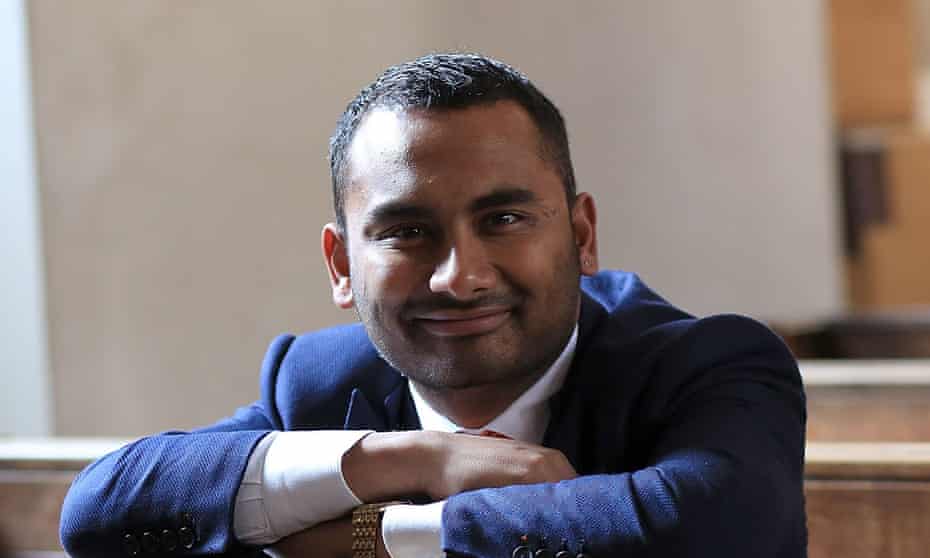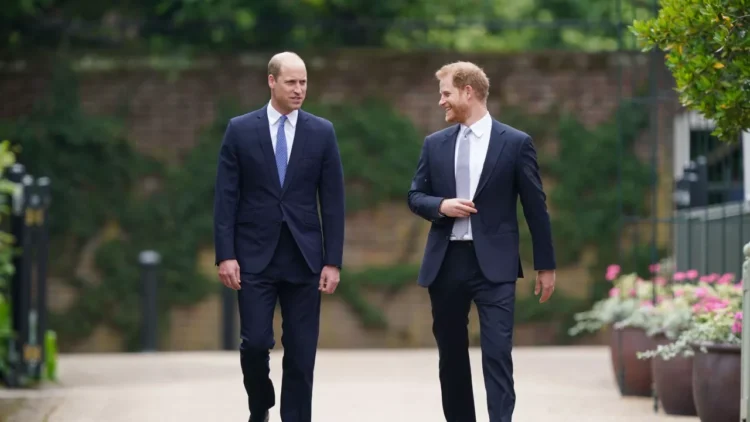By Gabriel Princewill-
The royal family should have a say or see an advanced footage of a delayed controversial podcast about the Duke and Duchess of Sussex that was due to air a few weeks ago, after its accompanying television series wrote about them.
As we approach a new year, any further coverage about the rift between the royal family and the Sussexes should seek to be as fair as possible in its overarching aim of achieving both harmony and information, taking no chances on bias at all where emotions and mental health could be greatly affected.
The Eye Of Media.Com has engaged the BBC in the past week in an attempt to convince the broadcaster to either abandon their plans to air their scheduled documentary, or afford the royal family a say in their planned podcast.
The BBC has said it plans to release a podcast next year to complete the second episode of the Princess And The Press, set out to examine: “Why did the coverage of Meghan Markle turn so sour, so quickly?”
Aides were particularly frustrated about what they perceived was a lack of proper “right of reply” to allegations in the programme, with the BBC refusing to give details in advance about what the claims were, and who was making them.
Presented by Amol Rajan, the podcast promises: “Allegations of sexism, racism and strategic leaks – we examine them all.”
Its claims by the Duke and Duchess that “sexism and racism in the media coverage”, played a role in the Duke and Duchess Of Sussex stepping down from official duties to pursue financial freedom in California, is in principle highly subjective and would require both sides to be reflected , or none at all.
Critics say an objective assessment of such claims will require counterviews to the allegations where necessary, which must be scrutinized carefully and objectively by the BBC before being broadcasted.
The podcast was supposed to air on the same day as the second instalment of the two-part television series Princes and the Press, on Monday, November 29, but was delayed on the day.
Two weeks later, the BBC said it was “still in production” and that it would be released as a box set only on an unconfirmed date “when it’s ready”.
The royal family has asked to see an advance copy of the BBC’s planned podcast for its second edition of the programme to be aired on podcast, after the Monarchy expressed disappointment and pain that the first episode was aired without its consent or participation.
Consent
Consent or participation to a broadcast is not imperative to the broadcaster, but fairness and due impartiality is one of the fundamental obligations of all Uk broadcasters under the remit of Ofcom’s code. The controversial interview conducted by the Duke and Duchess Of Sussex in March was piercing and explosive enough, igniting combat and dissension in all quarters, and dividing the Uk sharply along partisan lines.
It provided much food for the press too, but its mental health effects would have been most impacting to differing levels on the royal family itself. The resulting acrimony between members of a family once so revered and somewhat ethereal, was painful for many to observe. The remnants of that bitter fall out is still lurking till this day- media publications just couldn’t get enough of it.
The BBC wasn’t going to be left out of the latest sensational development, but is it going too far?Only recently the royal family was reeling from the revelation of the Martin Bashir scandal of 1996 when Princess Diana was duped into committing to the panaroma documentary under false pretenses.
Her Majesty the Queen now has the unenviable task of enduring a most unamusing court case involving her son. At what point is a balance struck between empathy and financial remuneration?
The changed plans came after 925 complaints about the television series so far, from viewers “who believe the programme was disrespectful to the Royal Family and therefore should not have been broadcast”.
Controversial
The royal feud has been incredibly consuming and controversial, evoking ill feeling and controversy in many respects, with highly subjective views dogmatically asserted as facts from almost all who have an opinion on it.
Allegations of racism stemming from a question asked about how dark Meghan Markle’s unborn child may be has divided opinion ever since the revelation was made; the question strongly construed to be racist by those offended by it, whilst others have perceived it a san innocuous question reflective of curiosity.
Tempers have risen, not all have fully calmed down. The immutable truth is that perceptions vary but only the mind of the one who expressed the question knows the intent of their own heart. Questions of this type has been asked by people of the same race in our time and in history; people of all races and creed are capable of prejudicial thought at some point in their history, but not necessary at all times.
Racism is a hot and sensitive subject. It is often affected by value judgement and perspective in the absence of compelling evidence, even when real in subtle forms.
The Eye Of Media.Com does not treat racism or any serious shortcoming with kids gloves, but also believes there must be no room for error in making allegations of racism. It is also our conviction than the broader picture of every situation must always be considered, including the timing of any publication in particular circumstances.
The failure of the BBC to provide the royal family with an advanced copy will appear to be contrary to the principles of impartiality contained in Ofcom’s codes of conduct.
Mental health analyst, Dein Vernhoven, said : ”It would appear that the royal family should be afforded a full defence, to reflect their version of events.
Some observers believe a production by the BBC without the imput of the royal family, will amount to a biased and unfair broadcasting of the programme, and will not serve an edifying objective.
Terry Edwards, a writer and Researcher told the Eye Of Media.Com:”it will seem more appropriate for a serious and sensitive story like this to be as balanced and honourable in ensuring that no impartiality is allowed to thrive in very serious matters like this. Things should always be thought out well”.
The Royal Households have objected to the show, issuing a rare joint statement to condemn it for giving credibility to “overblown and unfounded claims” about the family.
”The duty rests on the BBC to demonstrate that claims in the footage they plan to air are not unfounded, and the only way they can do this is to conduct an investigation of their own to genuinely determine the facts of the situation, assessing it from all reasonable angles.
A responsible broadcaster should have regard for the potential damage their broadcast could cause if there are ay serious inaccuracies in any of the claims.
Claims of racism by the royal family were aired in March when the Duke and Duchess Of Sussex spoke to Oprah Winfrey, but
Aides were particularly frustrated about what they perceived was a lack of proper “right of reply” to allegations in the programme, with the BBC refusing to give details in advance about what the claims were, and who was making them.
Presented by Amol Rajan, the podcast promises: “Allegations of sexism, racism and strategic leaks – we examine them all.”

Amol Rajan is presenter of The Princes And The Press. Image: John Phillip
Complicating the view that the podcast will be objective and impartial is the fact that the presenter Rajan is a known Republican who believes the royal family should be defunct, thereby making the fundamental requirement of due impartiality difficult to envisage, even if he may in theory have factual and objective issues to raise.
Ofcom had this to say when asked what its take was on the matter:
‘The BBC has its own Editorial Guidelines (covering the BBC’s editorial standards and journalistic practice) which incorporate the requirements of the Ofcom Broadcasting Code
Ofcom is a post-broadcast regulator and so we can only assess complaints about material that has been aired or made available on-demand by the BBC. If we were to receive a complaint relating to this podcast, we would consider it in line with our published procedures.
‘The Broadcasting Code sets standards regarding due accuracy in news and the preservation of due impartiality on matters of political or industrial controversy or matters relating to current public policy. The Code also requires broadcasters to avoid unjust or unfair treatment of individuals or organisations in programmes.
It sets out a number of practices to be followed by broadcasters when dealing with individuals or organisations participating in, or otherwise directly affected by, programmes as broadcast.
We can’t comment on the application of these rules in advance of broadcast of any programme or podcast’.

